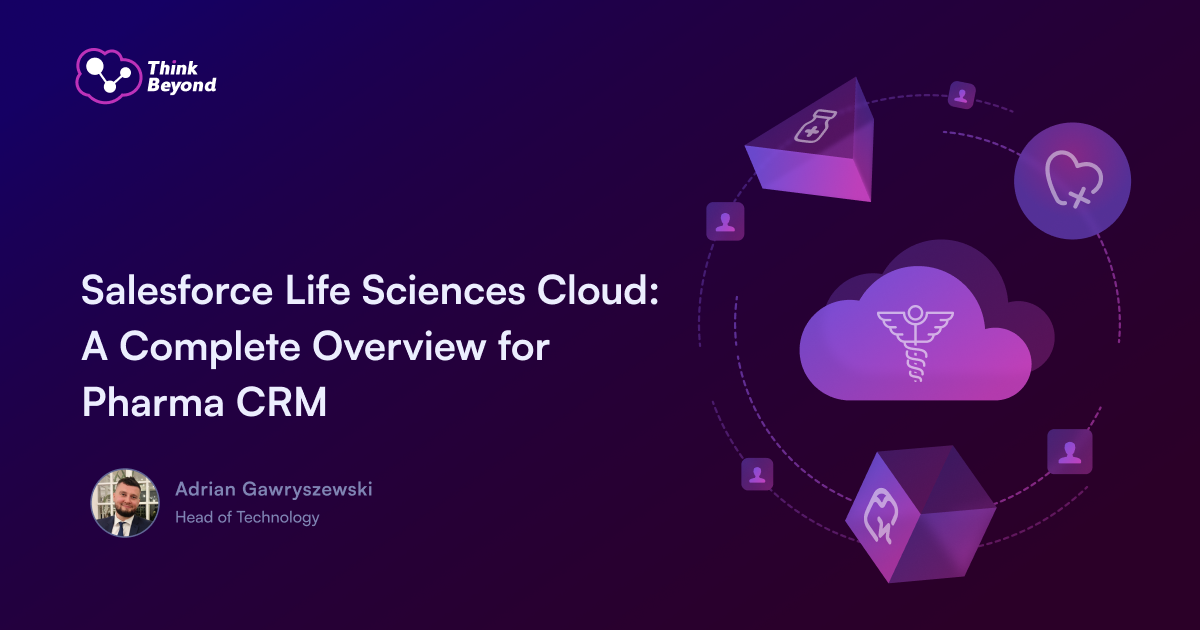Salesforce Life Sciences Cloud addresses the digital capability gaps that pharmaceutical companies have struggled with for years. Officially unveiled in 2023, this platform brings specialized functionality designed for the pharmaceutical sector’s unique challenges. But what makes this platform different from existing solutions? Let’s review the current challenges of the pharma sector and examine the key capabilities of Life Sciences Cloud.
Why Pharma CRM is Evolving
What’s driving pharmaceutical companies to reconsider their CRM strategies? The industry faces significant market pressures and changing stakeholder expectations that traditional systems can no longer handle effectively.
Digital Transformation Gaps in Life Sciences
Life sciences companies consistently trail behind other industries in digital maturity by a factor of two to three times across key dimensions—strategy, culture, organization, and capabilities—with no clear signs of narrowing this gap. A McKinsey analysis identified that only 55% of pharmaceutical companies have deployed digital applications at scale, compared to a mere 34% in medical technology companies. This digital lag stems from multiple factors, including an incomplete understanding of healthcare practitioners’ decision journeys and difficulties linking digital initiatives to broader business objectives.
Limitations of Legacy CRM Systems in Pharma
Traditional pharma CRM systems persist in organizations despite clear shortcomings. These systems create ongoing challenges through:
- Escalating support costs and expenses for regulatory compliance features
- Lack of cloud-based deployment, scalability, and reliance on internal IT systems
- Inability to integrate with modern digital channels and AI capabilities
- Higher security risks compared to modern cloud solutions.

The data tells a concerning story: 40% of pharmaceutical business leaders give their current CRM a failing grade for delivering quality insights. Furthermore, 80% express disappointment with the healthcare provider engagement related to their CRM usage. Yet pharma companies continue investing in these systems, with spending expected to rise from approximately $4.4 billion today to more than $6.6 billion by 2033.
The Rise of Omnichannel HCP Engagement
Healthcare professional engagement patterns have shifted dramatically. Currently, less than 20% of HCPs receive personalized experiences, meaning at least 80% believe they’re getting one-size-fits-all interactions. Moreover, 78% of HCPs now prefer a mixture of in-person and virtual events.
This shift toward omnichannel engagement places HCPs at the center, allowing them to navigate and customize their user experiences based on their specific expectations. When effectively executed, this approach utilizes integrated data and content across channels to deliver consistent and personalized campaigns. Pharmaceutical companies are prioritizing HCP insight (needs and behavior) as their number one strategic engagement priority, cited by 57% of pharma executives.
End-to-End Platform for Clinical, Medical, and Commercial Teams
The Life Sciences Cloud creates a unified ecosystem where clinical, medical, and commercial teams operate within a single platform. This integration enables seamless data flow between departments, eliminating the disconnected systems that have traditionally hindered efficiency in pharma CRM implementations.
Professionals can access integrated tools that support the entire product lifecycle from clinical trials through commercialization. The platform’s architecture supports various regulatory frameworks including GxP validation, essential for pharmaceutical compliance. The system maintains data integrity while enabling collaboration across traditionally separate functions—a critical capability for modern pharmaceutical operations.
Smart Pharma: Driving Sales and Marketing
Salesforce provides an extensive range of products that, when combined, offer potent solutions tailored to the particular requirements of pharmaceutical companies. Which of the different clouds and features meet the needs?
Medical Representative (MR) Management
This is primarily handled by Salesforce Sales Cloud and often enhanced with industry-specific capabilities from Salesforce Health Cloud or Life Sciences Cloud, and increasingly, Salesforce Field Service.
- Intelligent Appointment Management (within Health Cloud) streamlines the booking, modification, and cancellation of appointments, including multi-participant meetings, which is crucial for complex pharma interactions.
- Salesforce Maps (formerly MapAnything) plans optimized routes for their visits, considering location, traffic, and visit priorities, maximizing the number of effective calls per day.
- While Salesforce Field Service has been designed for field operations, its scheduling and dispatching capabilities can be customized to accommodate MRs. This enables the intelligent assignment of visits based on territory, HCP specialization, and available time slots.
- Recording Details of Product Detailing (e-Detailing) involves recording details of their product discussions, specific products detailed, feedback from HCPs, and any commitments made.
- Tracking Sample Distribution to ensure compliance with stringent regulations (e.g., PDMA in the US) and monitor distribution to HCPs, including lot numbers and expiry dates. This involves capturing recipient details, quantity, and specific product information.
Campaign Management
Campaign management is becoming more reliant on sophisticated technology solutions that enable companies to more effectively communicate with healthcare professionals and patients.This is predominantly handled by Salesforce Marketing Cloud:
- Journey Builder is a core component of Marketing Cloud. Marketers design and automate multi-channel customer journeys (e.g., email, SMS, mobile push, social media), and send a series of personalized communications to HCPs based on their behavior, preferences, or interactions.
- Marketing Cloud’s Events and Webinars functionality (often through integrations): While Marketing Cloud can send invitations and manage email communication, full-fledged event registration and management often involve integration with specialized event platforms. However, data from these platforms can flow back into Marketing Cloud and Sales Cloud to track registrations and attendance against HCP records.
Evaluating Leads from Various Channels
Salesforce leverages Einstein Lead Scoring, an AI-driven tool that transforms the way sales teams identify and prioritize high-potential leads. Rather than relying on static, rules-based systems, Einstein uses machine learning to analyze past converted leads, including custom fields and activity data, to identify patterns that lead to successful conversions.
It then automatically scores current leads based on their similarity to previously converted leads and updates these scores every ten days to reflect the latest trends and data. Medical reps can view each lead’s score directly in Salesforce, along with the key factors that influenced it. This makes it easier for them to focus on the most promising prospects.

HCPs First: Nurturing Stronger, More Impactful Relationships
Salesforce Life Sciences Cloud personalizes communication based on each HCP’s preferences, prescribing habits, and feedback. The platform offers robust customer journey tracking, providing companies with a comprehensive view of every interaction, from initial contact to ongoing engagement. So, they can find ways to give more personalized help and better service.
Additionally, Salesforce provides self-service access to important resources through portals where AI-powered agents and curated content are available on demand. This simplifies the delivery of information and allows health care professionals to access the necessary resources and answers at their convenience.

Driving Discovery in Clinical Trials & Advanced Therapies
How does Life Sciences Cloud bring together trial teams and patients? A single digital platform unifies them. Through streamlined collaboration and real-time insights at every stage, from planning to post-marketing surveillance, this connected approach facilitates clinical trials. Powerful recruitment tools and personalized messaging help enroll eligible patients faster and keep them engaged, addressing a major challenge since up to 80% of trials struggle to meet enrollment targets.
AI-driven analytics and workflow automation help find, onboard, and activate the right trial sites, making sure studies go smoothly and quickly. The platform offers a complete view of each trial, supporting secure, regulation-compliant collaboration and automating complex processes like therapy orchestration and chain of custody management—especially important for advanced therapies such as cell and gene treatments. With Salesforce Life Sciences Cloud, costly mistakes are less likely to happen, patients are safer, and operational costs are lower because all data is in one place and workflows are automated.
Audit-Ready, Always: Built-in with Pharma CRM Compliance
Regulatory compliance is an essential part of pharmaceutical CRM. It provides a robust framework that helps pharmaceutical companies navigate a complex web of industry regulations, going beyond mere data management.
This includes strict regulations such as HIPAA (Health Insurance Portability and Accountability Act), which guarantees the privacy of patient data. HIPAA ensures that Protected Health Information (PHI) remains secure by implementing features such as data encryption, access controls, and comprehensive audit trails. Furthermore, Salesforce Life Sciences Cloud helps companies comply with FDA guidelines, such as 21 CFR Part 11 for electronic records and signatures and clinical trial management regulations, ensuring data integrity and traceability throughout the drug development and commercialization lifecycle.
It also supports adherence to various local and international compliance standards governing drug promotion with features for consent management and tracking approved content. Salesforce provides a secure, auditable environment with real-time monitoring and reporting capabilities for all compliance-related activities.

The Smart Choice: Salesforce Life Sciences Cloud for Pharma CRM Innovation
Salesforce Life Sciences Cloud represents a strategic response to the pharmaceutical industry’s evolving engagement requirements. Healthcare professional preferences have shifted toward omnichannel interactions, demanding CRM capabilities that legacy systems cannot deliver effectively.
Migration decisions carry particular weight with Veeva’s planned departure from the Salesforce platform. Companies must evaluate whether the Life Sciences Cloud’s flexibility and configuration options align with their operational requirements. The platform’s extensive customization capabilities allow organizations to tailor workflows and data models to their specific business processes.
This makes the platform selection process crucial for pharmaceutical companies planning their digital infrastructure. The chosen solution will shape how effectively organizations engage healthcare professionals, manage clinical data, and maintain compliance in an increasingly connected healthcare environment.

